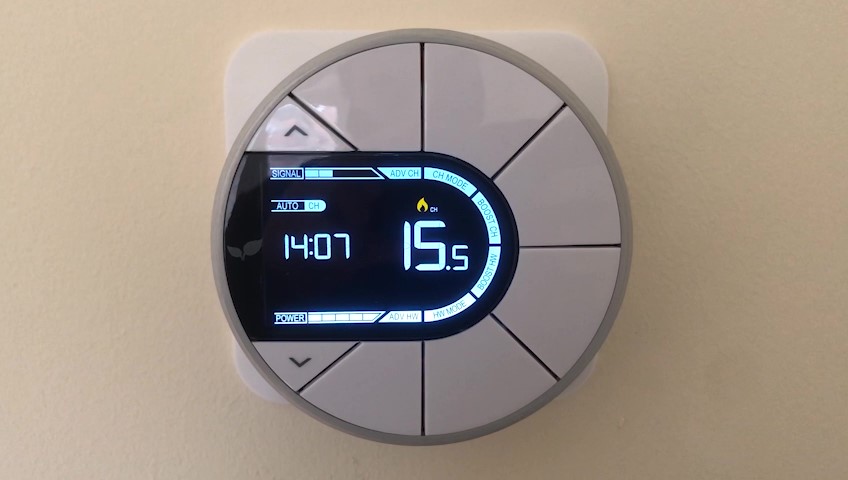
According to some predictions, energy bills could be bumped up by 50% in April for millions of households on a standard tariff. This could see the average energy bill rocket to almost £2,000 a year. (Source: Guardian)
The price cap, which limits the amounts suppliers can charge, will rise.
The energy price cap protects customers and ensures that firms do not inflict sudden price rises.
Age UK estimated rising energy prices would force 150,000 older households into fuel poverty this winter. (Source: Age UK)
Since leaving the European Union, Britain has enjoyed the freedom to set its own VAT rates.
Labour has suggested the Government remove VAT from household energy bills over winter to prevent a surge in fuel poverty. (Source: Daily Mail)
However, Boris Johnson said the removal of VAT is not the most effective way to solve the crisis. (Source: Daily Mail)
According to the HMRC statistics, cutting VAT on fuel bills would have cost the Government around £1.7billion last year. (Source: Independent)
Steps we have taken in our HMO's to combat the surge in energy prices
Installing a remote controlled thermostat that allows us to control the heating from anywhere via an app is invaluable in saving money by ensuring tenants are using the heating facilities in the household efficiently.

I believe this device may save you money too in your HMO's as it will prevent your tenants' misuse of the use of heating controls. I'm sure you will know those tenants who wear a tee-shirt and shorts, with the heating set to 35degrees and all windows open, running 24/7. It also prevents tenants from tampering with the temperature, ensuring the heating in the property is maintained. We lock down all controls except the boost button.
Our installer of the remote thermostat, Andy, said: "You can change the temperature remotely from the app and you can view graphs to see when your tenants are going to be in or out of the property.
"Also, there is another device you can install to the system which will automatically turn off the heating if it doesn't detect motion within a certain period of time.
"So, there are quite a few options there that keep you happy as a landlord."
However, that does not mean we will not allow the tenants to have any heating on, but it will ensure the heating is used sensibly and reasonably.
The thermostat comes with a convenient "boost" feature available for tenants to get heating outside the usual heating times set by the thermostat.
The thermostat installer said: "On the thermostat, there is a boost button, so you can pre-set to whatever value you would like.
"If you wanted to run your heating at a standard 19 degrees, if that boost button is pressed, you can make the temperature 2 or 3 degrees warmer for a certain period.
"You control how long this boost goes on for, so you've got full control as a landlord in refining the thermostat into something that will work for you."
What are the temperature requirements in a private rented home?
According to the HHSRS "A healthy indoor temperature is around 21˚C."
You can read the blog on excess cold here: https://www.normangalloway.co.uk/news/your-property-healthy-winter
The Government previously recommended a temperature of 21˚C for living rooms and 18˚C for bedrooms. However, they now recommend a temperature of 18˚C for the whole property. The explanation for this information can be found via the link: https://ukhsa.blog.gov.uk/2014/10/21/preventing-avoidable-deaths-this-winter/
What happens if the Wi-Fi in the property goes down?
As the device is internet reliant, there could be some concern surrounding the potential failure of the Wi-Fi connection and how that would affect the thermostat.
The installer said: "If the Wi-Fi goes down at the property it will terminate the connection between your device and the thermostat connection.
"But once the internet connection is up again, it should reconnect automatically.
"It’s only whenever you change network details such as a password or username where the thermostat won’t reconnect.
“You’ll have to attend the property again to reconnect it.”. We find that having an alert when a tenant has tampered with the device has been invaluable. If for example, all the windows are wide open and the tenant is not dressing for the weather but wants the heating set to 35 degrees, in the middle of the night, we feel wholly justified in stating that this is unreasonable.
Is it compatible with boilers?
You may think you will need to invest in a brand-new boiler to enjoy the features of the remote thermostat, which would cost thousands. However, this is not the case.


Andy said: “It does depend on the boiler as to what parts are required.
“But you can install them on most boilers.
“About 95% of boilers are compatible with this thermostat.”
How does the thermostat deal with frost protection?
Frost protection mode bypasses your programmed heating levels but will maintain a low temperature in your home.
So, does the set temperature on the thermostat affect this?
The installer said: “In terms of frost protection, it is usually a standard on most thermostats now and so most new thermostats that will come automatically installed and set up.
“Older boilers might not have that or if you don’t have a thermostat connected to a boiler you might have that issue.”
Summary
Overall, the landlord controlled thermostat is a great way to combat the rising energy costs. It ensures the heating is used efficiently and the tenant keeps warm. The added functionality of setting the temperature and schedule for each property gives a great level of versatility depending on your tenants' particular needs.


